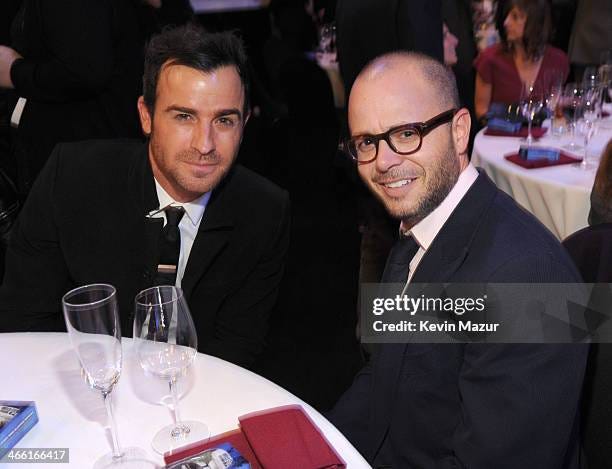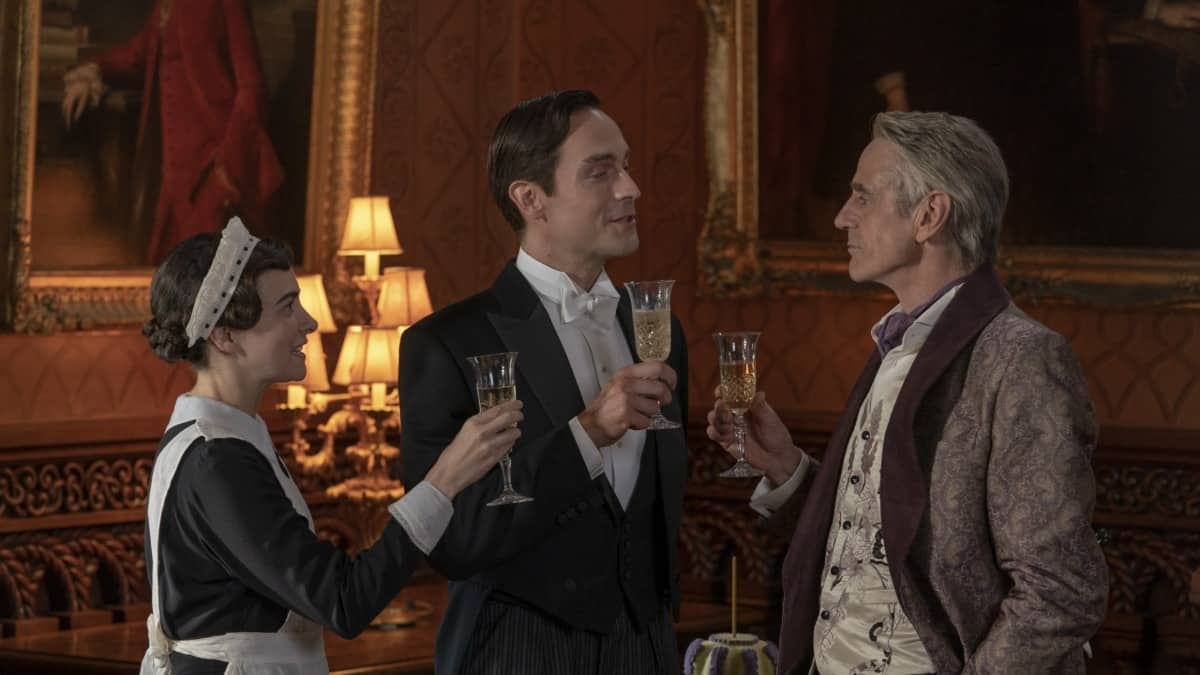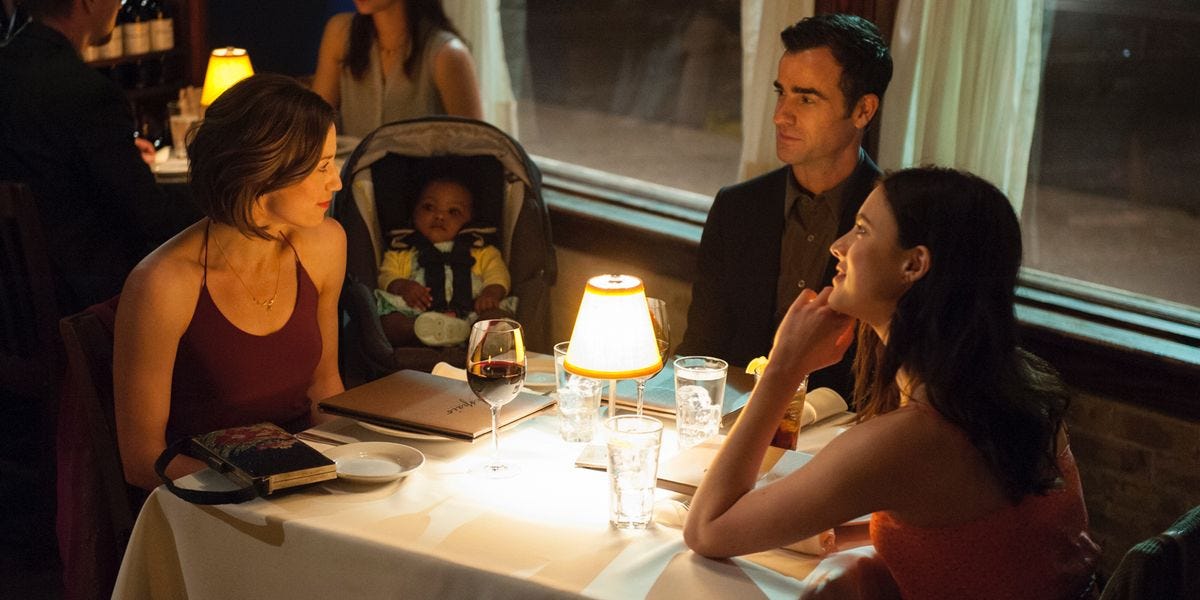My friend Damon Lindelof, creator of shows such as Lost, The Leftovers, and Watchmen, told me that a comment he made on a podcast about Severance was directed at me.
Talking about Christopher Walken’s character’s oenophilia, Damon said:
“I’ve come to believe in the course of my life that there’s a direct proportion between people who know a lot about wine and evil. There’s no one more evil on this planet than sommeliers.”
I can see where Damon is coming from. Knowing about wine is not likable. It’s annoying, it’s elitist, and it’s intimidating. Knowing about beer, on the other hand, is only annoying.
It seems like a way to act superior about something purely classist, the way you once showed off your boarding school education by quoting things in Latin or saying that you once had oral sex with another boy.
His deep distrust of the wine world is why Jeremy Irons plays a guy who destroys New York City in Watchmen and lives like this:
And why a plot line in Lost is about how the island is a cork preventing “the darkness” in the wine bottle from spreading.
And why there’s a scene in The Leftovers where all these people are drinking water with dinner. Even that baby is wondering why no one is touching the one wine glass:
And it’s why this is the only bottle I know for certain that Damon owns:

I asked Damon, who both drinks wine and knows an extraordinary amount of detail about everything, what his issue is about learning something from a sommelier. He told me that sommeliers are evil because their job is to trick customers into spending a lot of money.
This seemed silly to me. Everyone’s job in a capitalist society is to trick customers into spending a lot of money. At least with sommeliers, you can give them a budget and they’ll abide by it, unlike real estate agents, car salespeople, or television showrunners.
So I asked Matthew Brodbine, the sommelier who is beverage director at the Santa Monica restaurants Seline and Pasjoli, to rebut Damon’s accusations.
I would argue there are far more evil sales positions in the world. (Bankers and lenders?)
The world of hospitality is very much being hospitable towards our guests. Guests come in with a budget in mind, and I try to adhere to it as best I can. They will feel far more comfortable with me and enjoy their overall experience more should we meet that criteria. Why try to leave a bad taste in their mouth right from the start? It would only be an uphill battle.
Unfortunately, like a lot of luxury items, wine is expensive. My goal, as a sommelier, is to guide a guest into a bottle that they feel comfortable with, not rip someone off. That's not how I do business nor do I instruct my somm team to do business. Maybe Damon has dined elsewhere, but if he were to dine with us we would talk about two things:
1. What kind of wine he likes to drink and if there is a budget he'd like to remain within
2. 'The Leftovers" is one of the most incredible television series I have ever seen and I recommend it to everyone I know. I have rewatched the complete series several times and "International Assassin" remains the greatest hour of television I have seen.
David Gibbs, the owner of Augustine, the best wine bar in the country, is also great at hospitality. Though less so when he’s not at the restaurant and texting me from home. And when he’s defending his people. When I asked for a response to Damon’s quote about sommeliers being evil, Dave said:
“His quote makes about as much sense as the ending of Lost.”
He also called him a dink.
But I understand his dinkishness. When Damon tells me details about comic books that I can barely follow, I don’t feel insecure about my social status. Wine, however, can do that. Which is weird, since it’s an alcoholic beverage. It’s not philosophy. It’s not art. Sure, it can be an expensive hobby, like watches, cars, or fashion. Or comic books.
But wine is evil only in the way that capitalism is evil. You don’t have to buy into showing off. Besides, no sommelier is impressed when you order the expensive bottle. What they want is what everyone wants. What Damon wants. They want you to let them talk at length about the minutiae they know.







